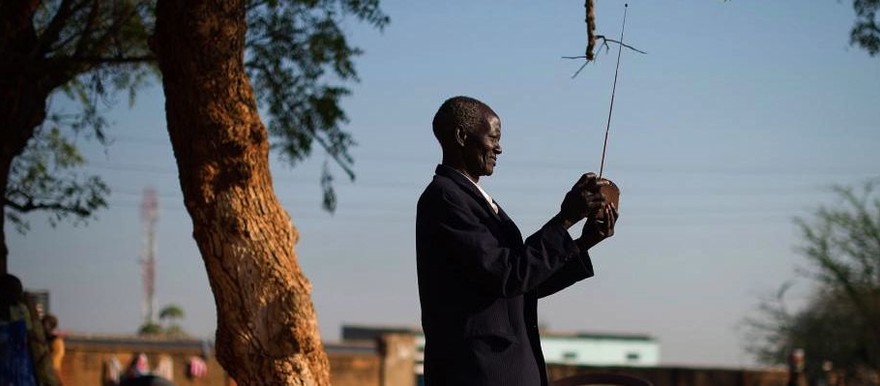South Sudanese towns are suffering from an ‘information vacuum’ owing to the stoppage of radio stations and harassment of journalists, according to the international Committee to Protect Journalists (CPJ).
CPJ also states that the surviving local media houses self-censor and are forced to adhere to the government narrative of events. South Sudan’s government, for its part, says that journalists should not cross red lines. The information minister says that all journalists should submit their CVs to his office for vetting.
In an update released on its website on Monday, the New York-based rights organization points out that there are no FM or AM radio stations at all operating in Bor, Malakal or Bentiu, with the exception of the state-run radio in the latter town.
Bor, which changed control four times, “is now virtually silent – as are the airwaves,” says CPJ. “After violence erupted along ethnic lines, most reporters were compelled to flee the two radio stations operating in Jonglei State,” says the organization, citing a local reporter.
“The government radio station, Jonglei Public Radio, turned into a mouthpiece for the rebels, with the station under the control of rebel spokesman Hussein Marr Nyot,” states the report.
CPJ adds: “The only independent station, Radio Jonglei 95.9 FM, closed down after staff fled and the station’s equipment was looted. Other Bor-based freelancers have fled to camps for internally displaced persons and/or lost their equipment.”
Bentiu has likewise been “reduced to a ghost town with an information vacuum.” There are only two radio stations in Unity State and the state radio is the only one functioning, according to freelance journalist Bonifacio Taban.
A Catholic radio station in Malakal, meanwhile, Voice of Love, has been forced off air owing to insecurity, damaged equipment, and lack of fuel, as has the FM repeater operated by BBC, for the same reasons.
In Juba, the entire print run of the Juba Monitor newspaper was confiscated by the National Security Service once on 16 January and again on Tuesday, 28 January, because of opinion articles they found objectionable.
The only national FM radio service in South Sudan – based in Juba with repeaters around the country – is run by the United Nations. Citing a journalist from Bor who himself was forced by fighting into hiding in the bush, CPJ says that in such areas the listeners want more local information and not the “national view” provided by the UN radio.
CPJ also reports, “the majority of local news houses in South Sudan self-censor or follow either the government or rebel narratives, fearing retribution by either warring party. The result is that citizens do not trust news outlets, and the rumor mill has heavy influence.”
“Few hold much hope for greater press freedom under the current leadership,” states the report by Committee to Protect Journalists.
Photo: A man displaced by violence at the Kator Cathedral in Juba, December 2013 (AFP/Phil Moore)




